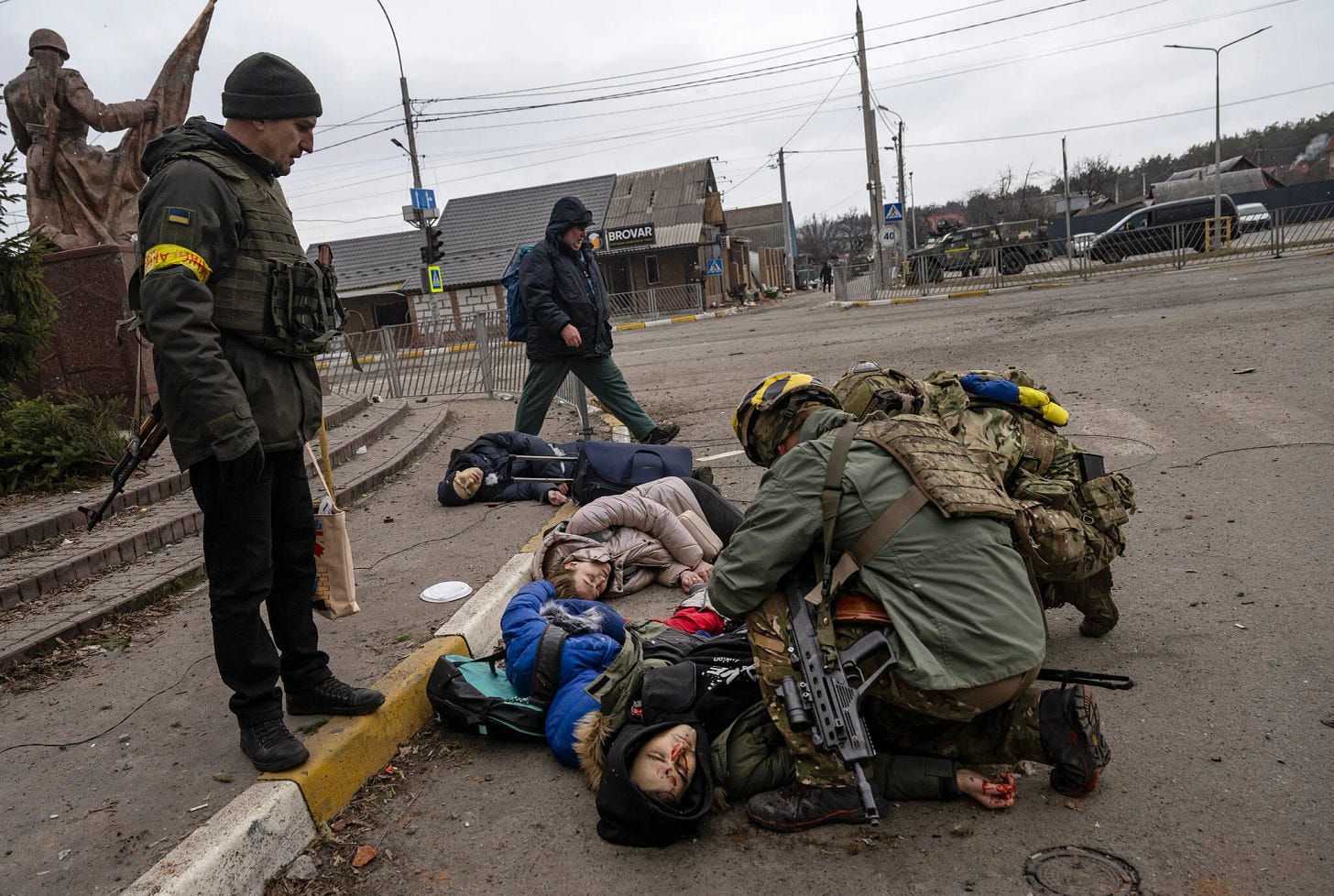Putin doesn’t care about war crimes investigations
Thousands of dead Ukrainians won’t care about the long-term economic costs Russia will pay
Russia bombed a maternity hospital this week, one of at least 24 health care facilities it has already attacked in Ukraine according to the World Health Organization. As the scenes of carnage continue to unfold in the war, the United States and Europe look for other ways to respond within self-imposed limits in this latest episode of self-deterrence.
Millions of people are fleeing the country and Russia continues to advance, and a bad situation looks like it will get worse. Some strategists will try to take consolation in the fact that Russia’s military hasn’t performed as well as expected or that Russia will have a diminished position in the world in the long run. Others grope for statements and gestures to try to make a difference. For example, U.S. Vice President Kamala Harris threatened war crimes investigations against Russia on a trip to Europe this week.
Russia’s President Vladimir Putin doesn’t care.
At this point, Russia looks likely to steamroll deeper into Ukraine, ignoring the pleas for diplomatic offramps.
As the military and economic costs rise, we shouldn’t forget another cost that is mounting: the moral and human costs. It’s those costs that are perhaps the biggest price we pay when we turn away or simply do the bare minimum.
Serbhiy Perebyinis probably doesn’t care about your theory on NATO expansion
This past Sunday, Serbhiy Perebyinis lost his wife, son, and daughter - all three were killed by a Russian mortar attack as they were trying to flee the violence. Perebyinis was not with his family at the time – he was in the eastern part of the country caring for his elderly mother who had COVID-19. He found out about his family’s death over Twitter, where he saw an image of the attack’s aftermath and recognized their luggage.
When Perebyinis was stopped by Russian guards on his journey back to Kyiv, he told them: “My whole family died in what you call a special operation and we call a war. You can do what you want with me. I have nothing left to lose.”
The story of this family, captured by Andrew Kramer and Lynsey Addario of the New York Times, is similar to what has happened thousands of times in places like Syria, Yemen, and the Gaza Strip among other places in recent years.
Sadly, it’s a scene that will likely repeat itself in the coming months if Russia continues on its current path, and that human element is all too often ignored or sidelined in foreign policy debates these days.
Moral isolationism and the globalization of indifference
No one really knows how the Ukraine war will end and how much damage it will do to the wider world. But one thing’s already for sure – the trend towards doing very little to prevent atrocities against innocent civilians will likely continue. Some of this is the product of America being in costly wars for decades with no end in sight. Some of it is the result of the fact that the value of human life and support for the common good has declined in U.S. foreign policy discussions and around the world.
Putin is able to do what he’s doing right now in Ukraine in part because of the steady stream of shoulder shrugs and lack of seriousness from leaders around the world on Ukraine and other similar conflicts like Syria. Recall that Ukraine is the place that was used as a prop in America’s own political fights during the Trump era. Recall that Barack Obama said his decision not to intervene in Syria after the Assad regime conducted a chemical weapons attack against the Syrian people was one of his proudest moments. (Assad went on to conduct many more chemical attacks and murder his own people for years).
Despite entreaties from Ukraine, America and Europe appear unlikely to stop Russia’s onslaught, but they may slow it and impose huge costs on Russia. A majority of Americans today support sending more military aid to Ukraine and more sanctions on Russia, but support for a no-fly zone and sending more troops to Europe is quite low, according to a recent Wall Street Journal poll.
If there’s any consolation in this grim time, it’s that people around the world appear inspired by the bravery of Ukrainians fighting for their country and many are stepping up to help the millions of Ukrainians who have become refugees in other countries. But it’s not likely to turn the tide against Russia in the immediate.
Calls for war crimes investigations are noble and important but ultimately a sign of impotence in the face of brutality. Justice may come someday, but not soon enough for too many Ukrainians.
As we see the war unfold in Ukraine, we should keep in mind that the costs of doing the bare minimum aren’t just measured in physical destruction and economic costs alone. There’s a high moral cost, too, and that toll continues to mount.



